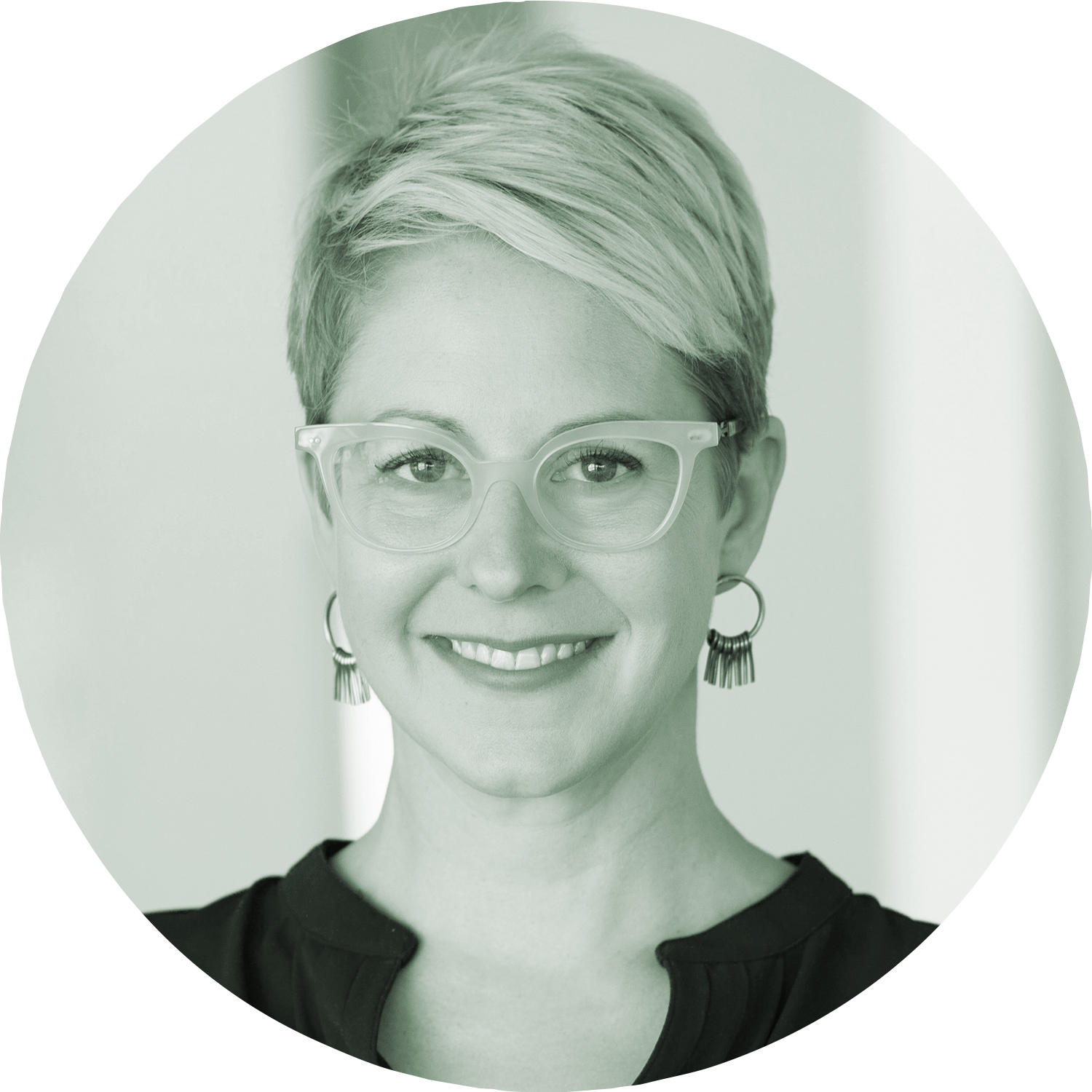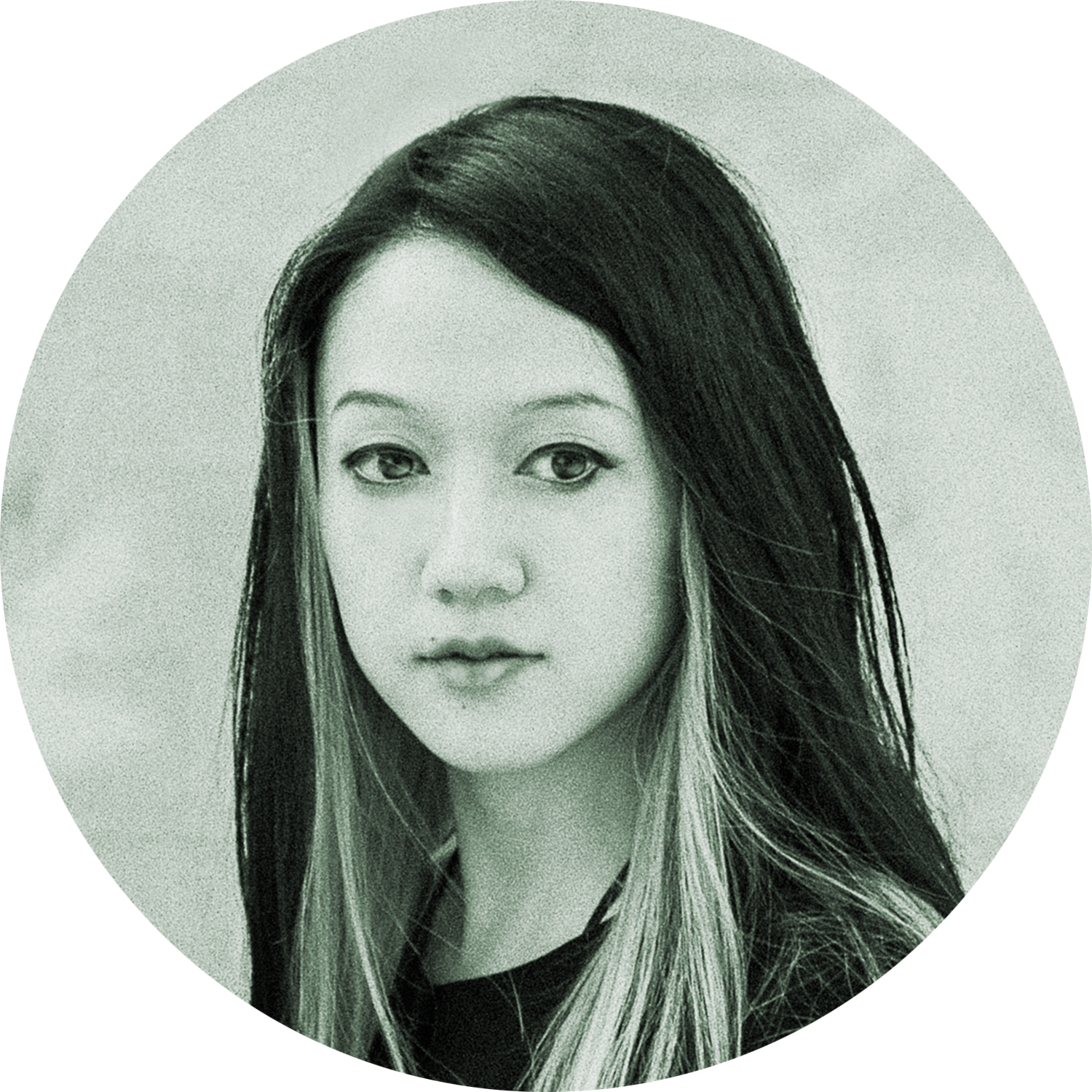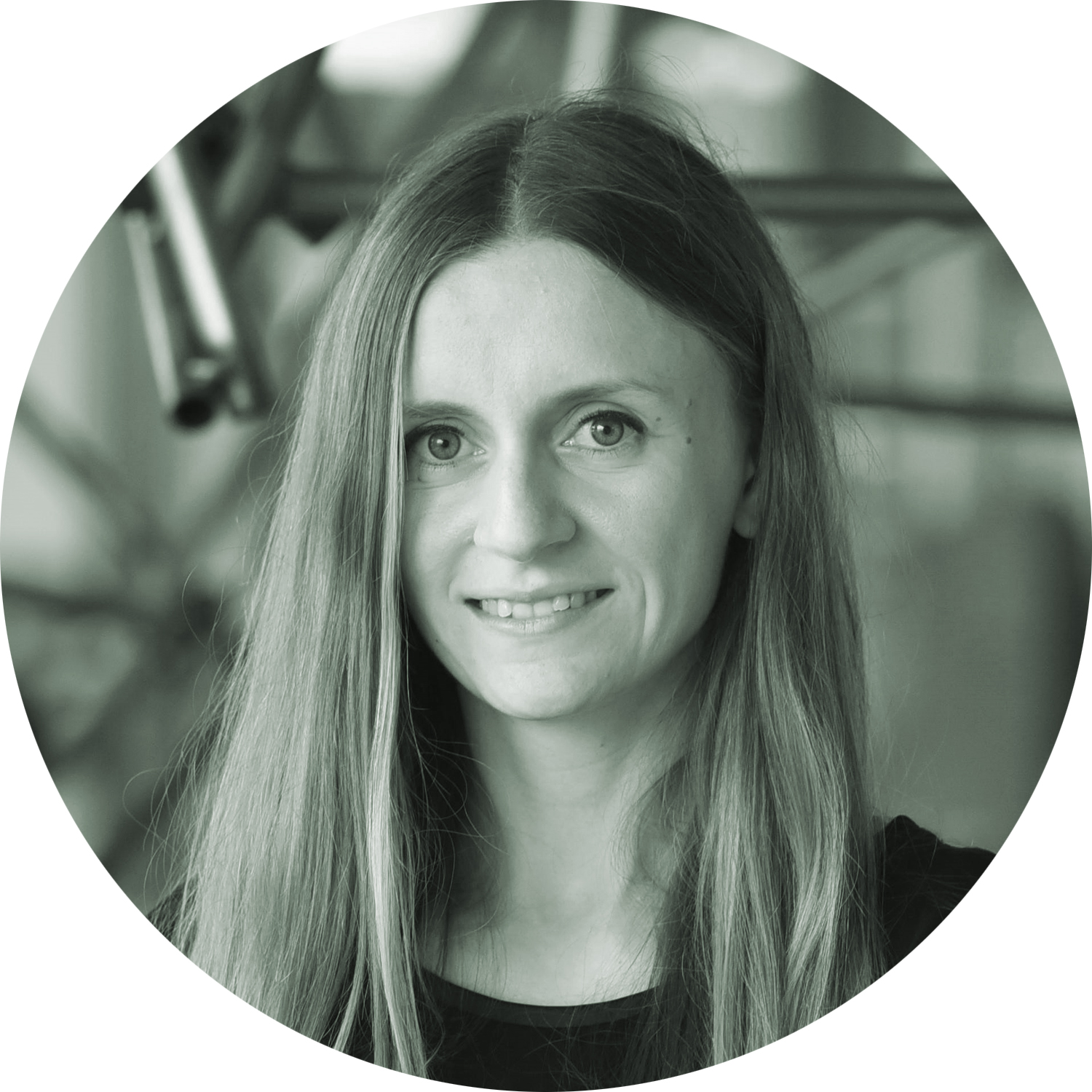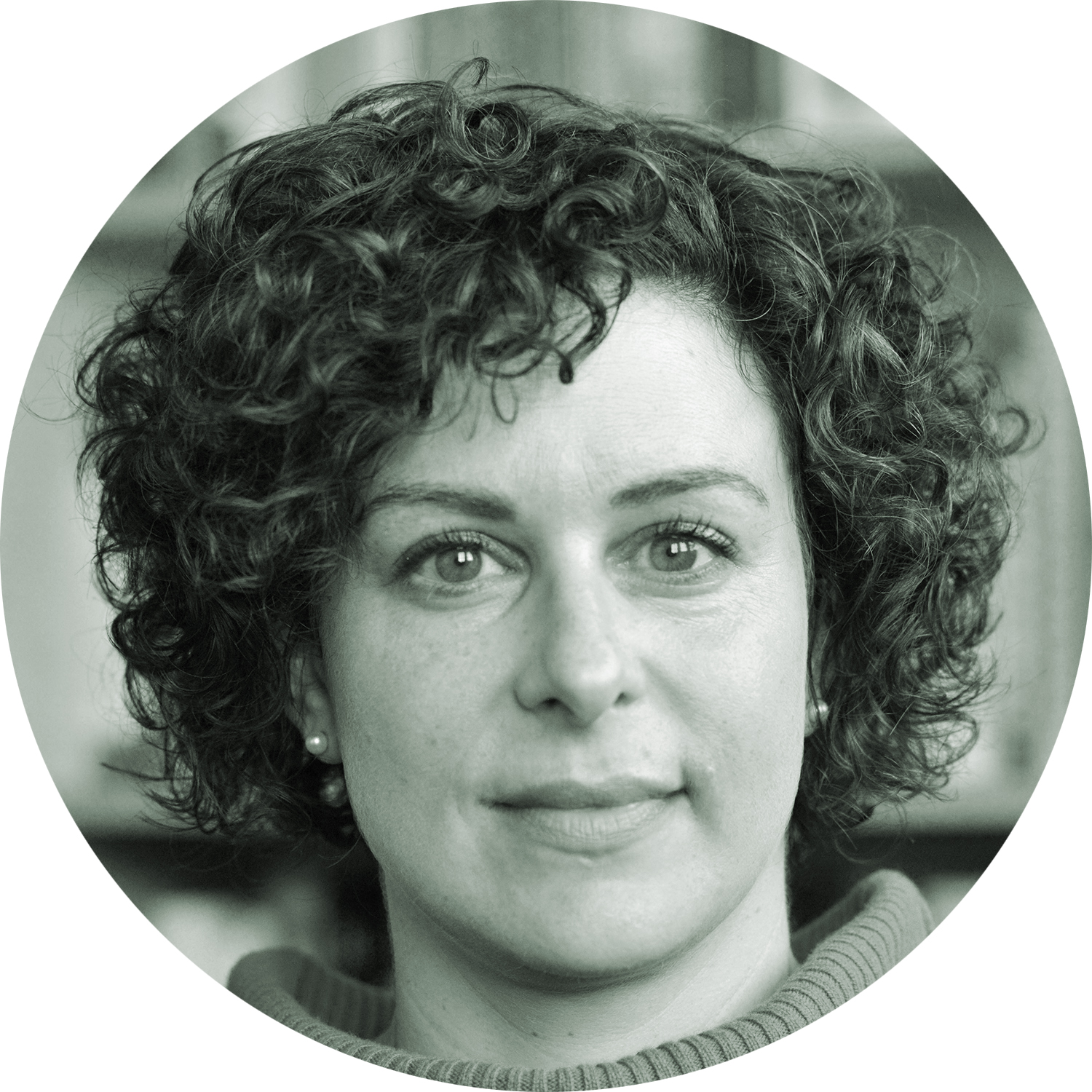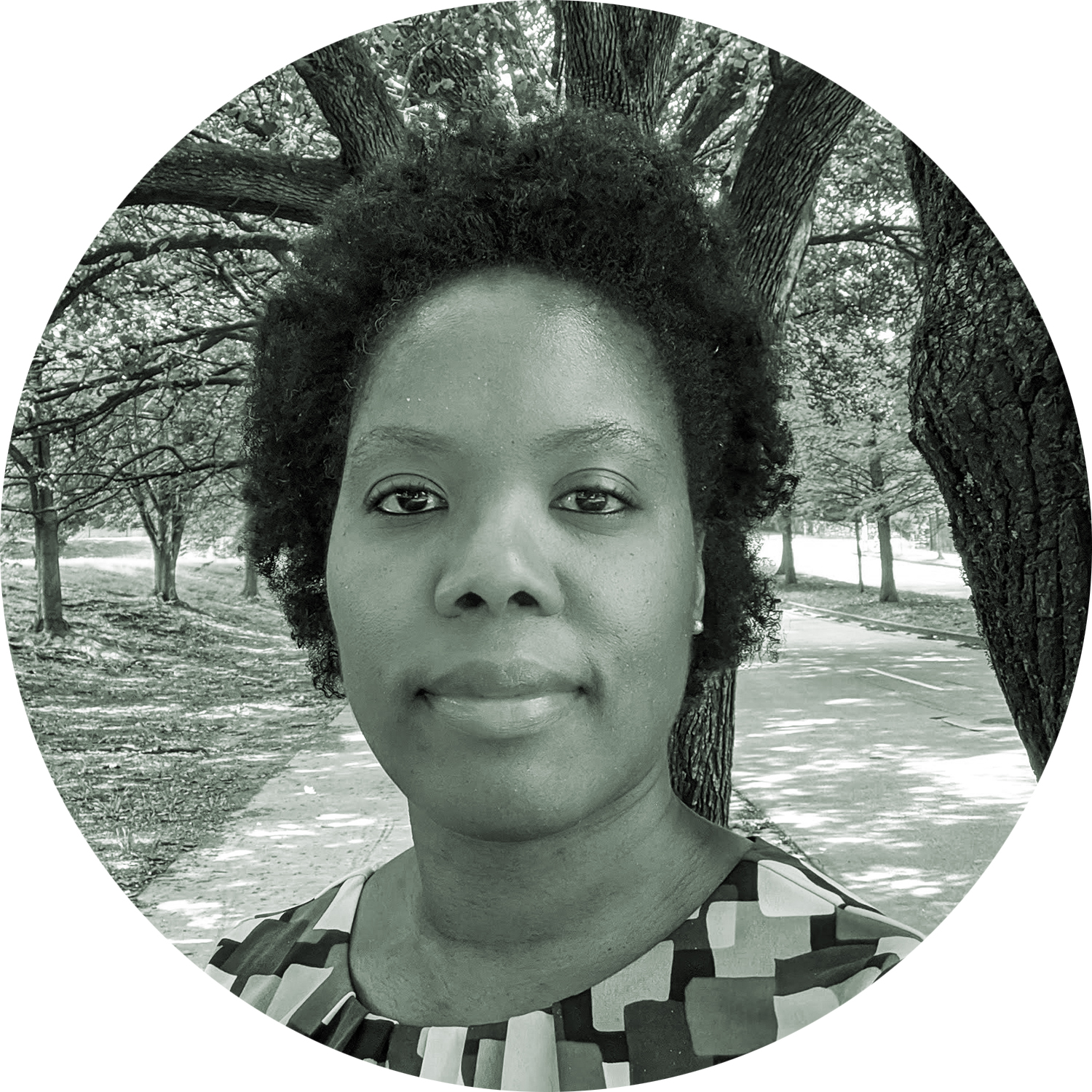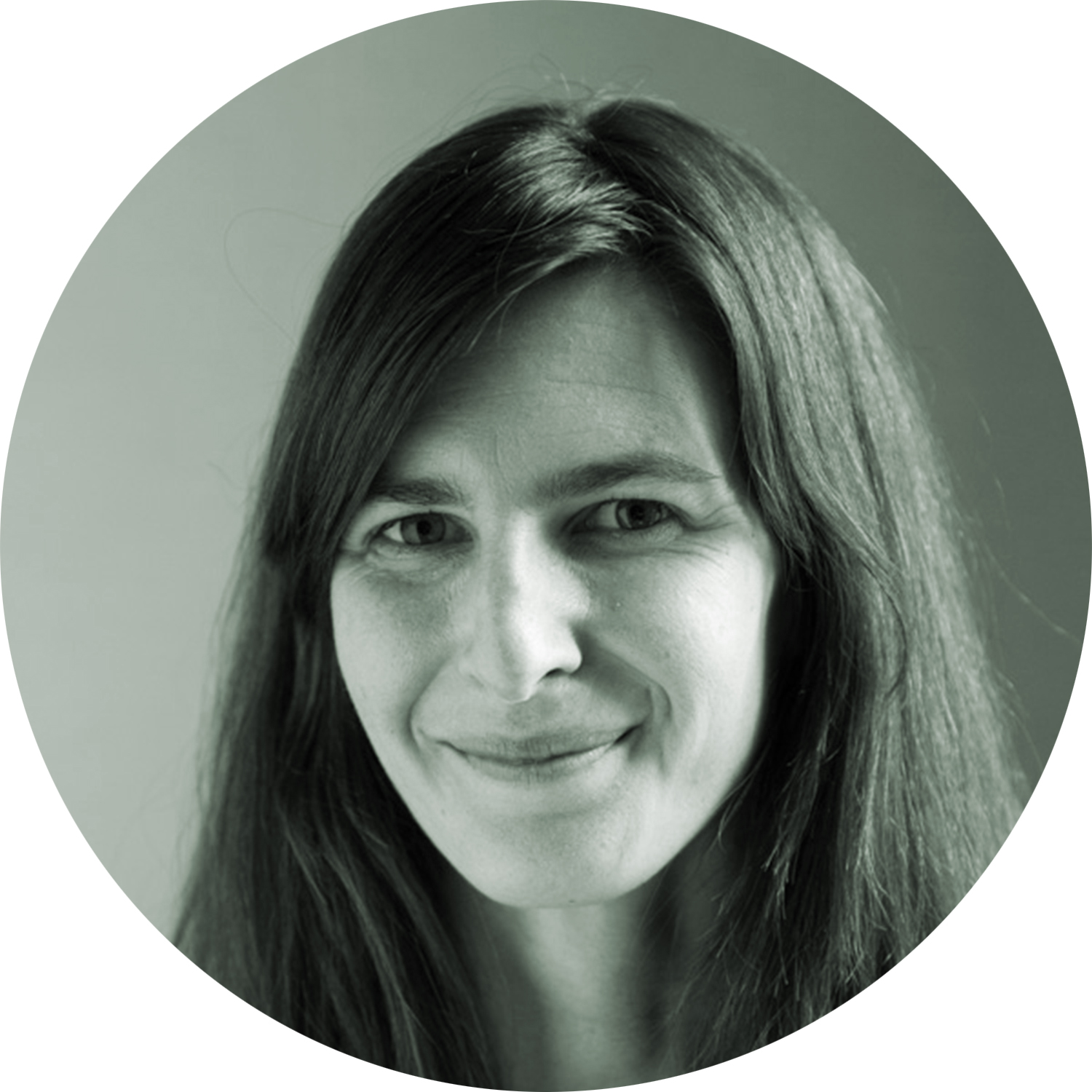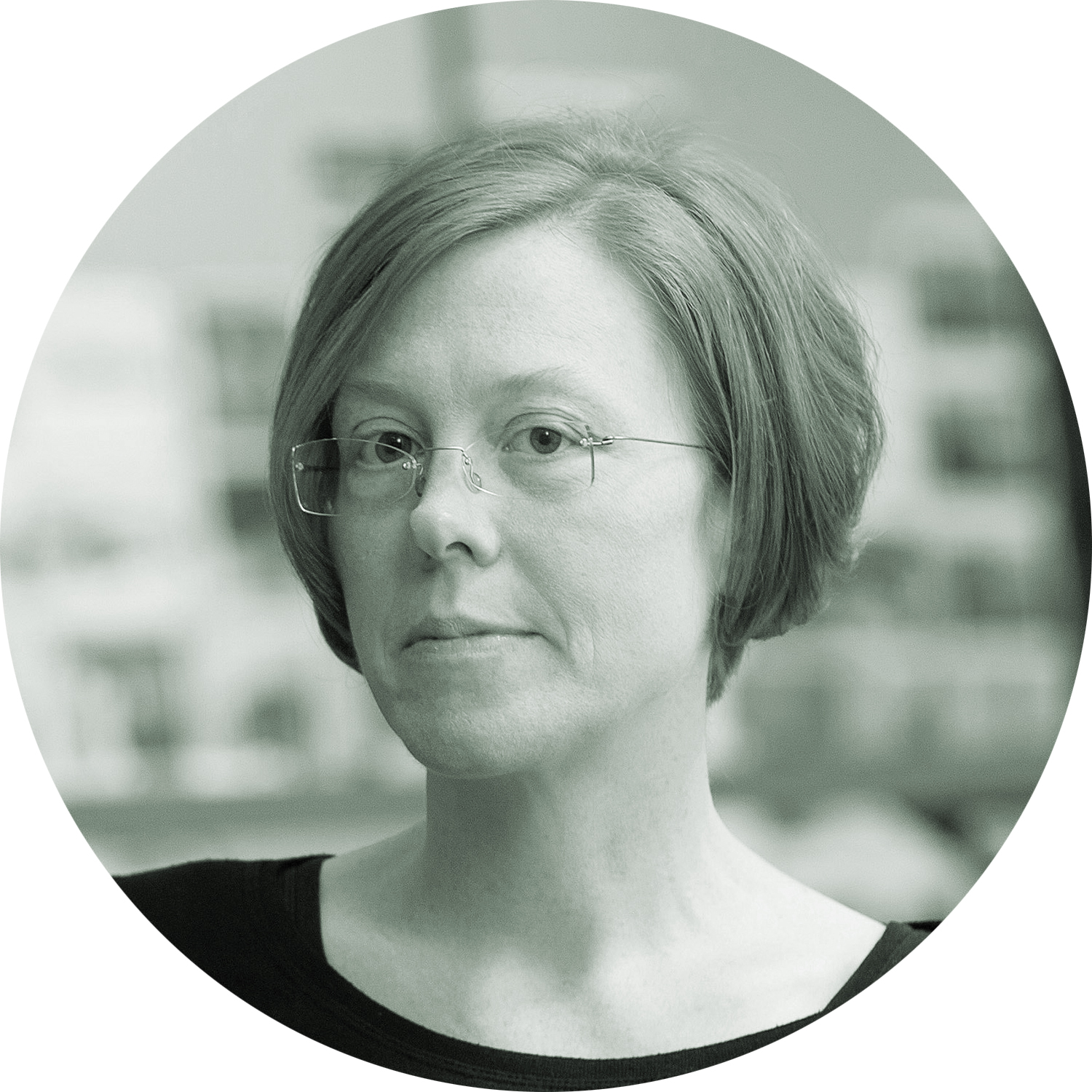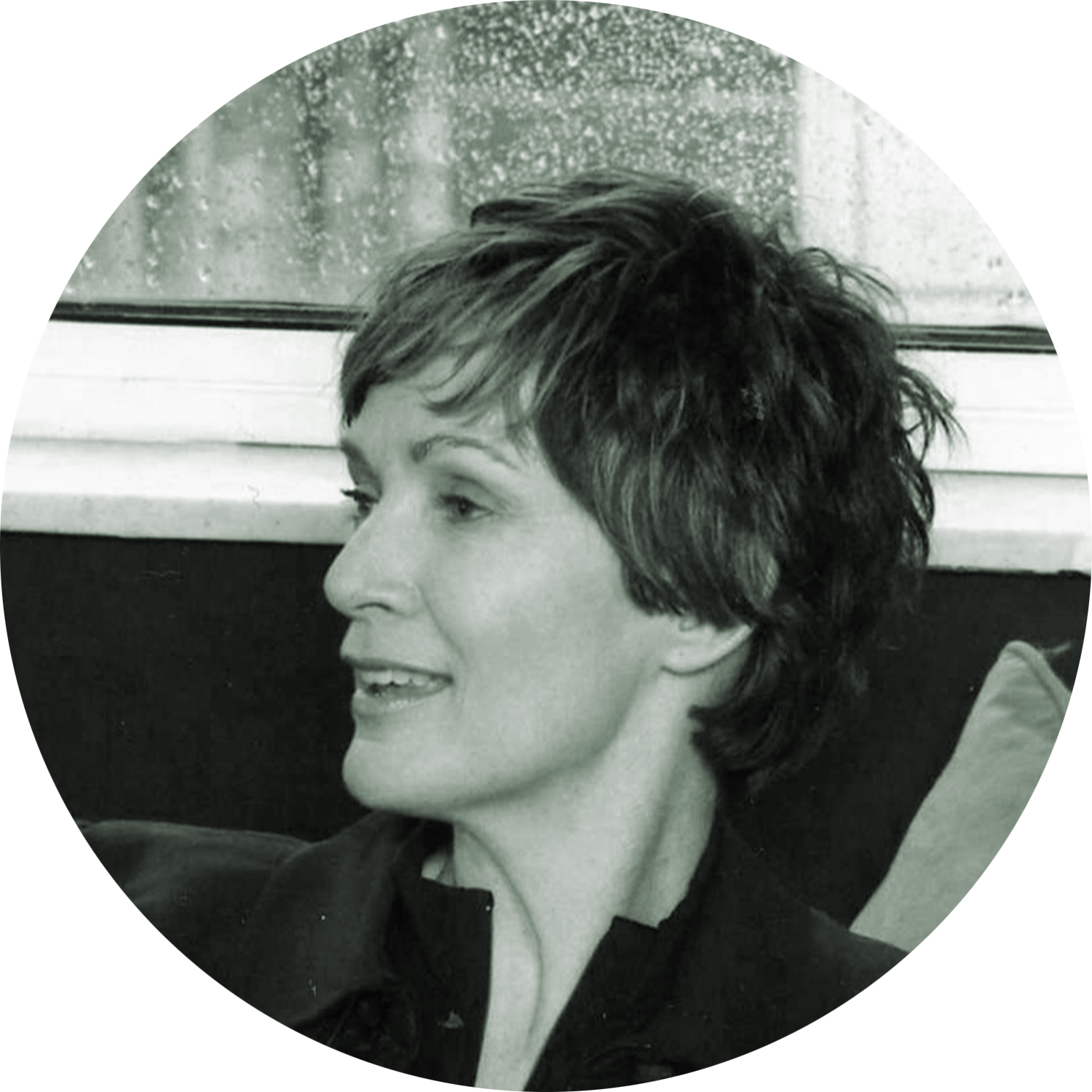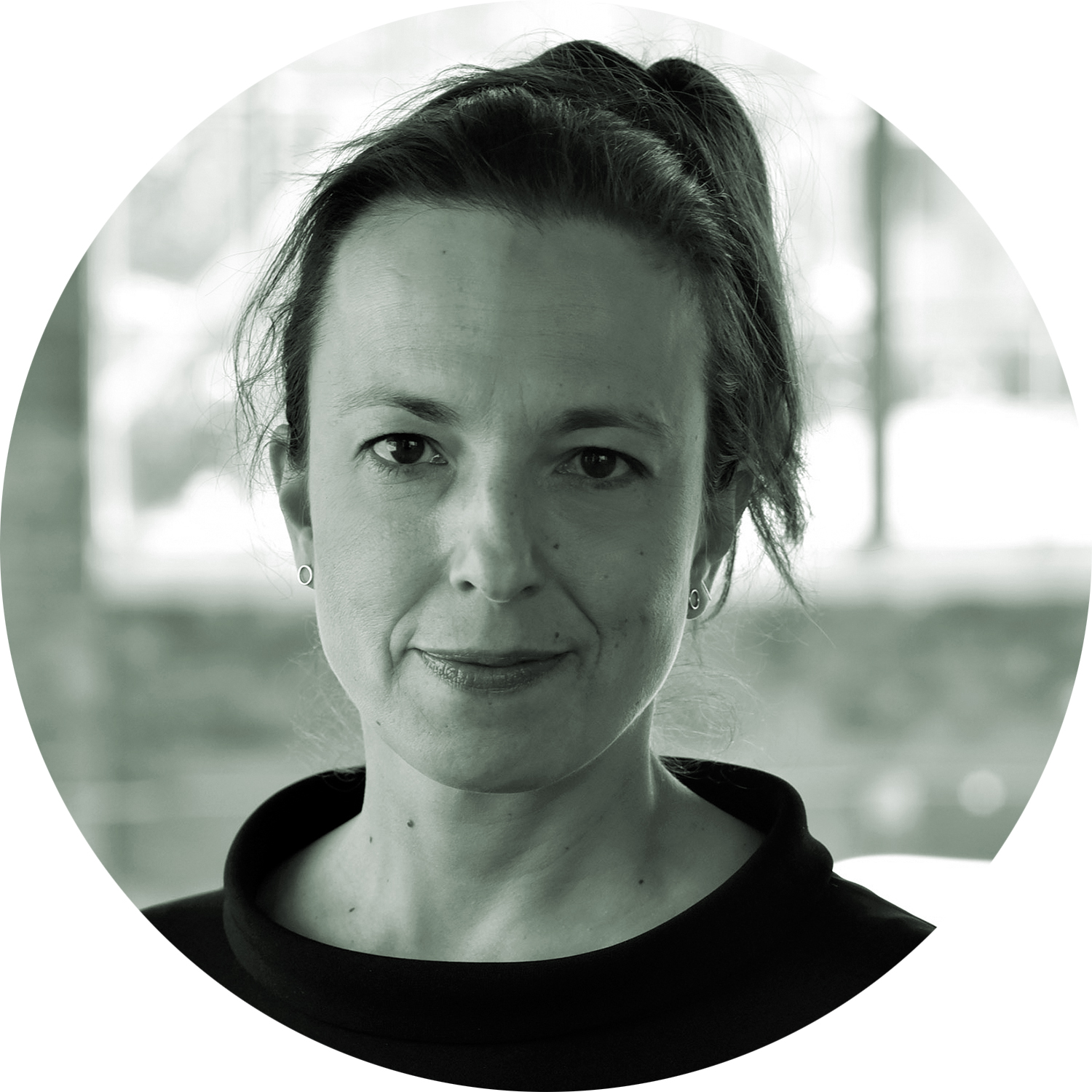
ACADIA 2020 | DISTRIBUTED PROXIMITIES | October 24-30, 2020 | Online + Global
Keynote Events
This year's ACADIA conference will feature a series of keynote conversations organized around specific prompts related to the conference theme Distributed Proximities. The format will encourage dialog, discussion, and debate around topics that are critical to practices and pedagogies of design computation: Ecology & Ethics, Data & Bias, Automation & Agency, Culture & Access, Labor & Practice, and Speculation & Critique.
Opening Keynote: A Conversation on Ecology & Ethics, with Jennifer Gabrys and Molly Wright Steenson
Day 1: A Conversation on Data & Bias with Ruha Benjamin, Orit Halpern, and David Benjamin
Day 2: A Conversation on Automation & Agency with Erin Bradner, Sougwen Chung, Stefana Parascho, Elly Truitt, and Georgina Voss
Day 3: A Conversation on Culture & Access with Kate Hartman, Vernelle A. A. Noel, and Laura Devendorf
Day 4: A Conversation on Labor & Practice with Peggy Deamer, Billie Faircloth, and Mollie Claypool
Closing Roundtable: A Conversation on Speculation & Critique with Hernán Díaz Alonso, Winka Dubbeldam, Nicholas de Monchaux, Albena Yaneva, Molly Wright Steenson, and Kathy Velikov
OPENING KEYNOTE: A Conversation on Ecology & Ethics
Monday, October 26, 10:00-11:30am EST
Technologies of sensing, analysis, and simulation provide architects with new methods to understand, model, and interface with ecologies across scales, from the material to the planetary. How might access to such computational modalities inform novel approaches to architecture and design? What are the ethical implications and questions that arise in this context, particularly as we consider humanity’s destructive impact on the environment? This keynote event brings together two critical thinkers to explore the intersections between computation, ecology, and ethics.
|
Jennifer Gabrys Jennifer Gabrys is Chair in Media, Culture and Environment in the Department of Sociology at the University of Cambridge, and Visiting Professor in the Department of Sociology at Goldsmiths, University of London. She is Principal Investigator on the project AirKit, and she leads the Citizen Sense project, both funded by the European Research Council. In May 2020, she began a new ERC-funded project, Smart Forests: Transforming Environments into Social-Political Technologies. She is the author of How to Do Things with Sensors; Program Earth: Environmental Sensing Technology and the Making of a Computational Planet; and Digital Rubbish: A Natural History of Electronics; and co-editor of Accumulation: The Material Politics of Plastic. Her in-progress books include Citizens of Worlds: Open-Air Toolkits for Environmental Struggle. Together with Ros Gray and Shela Sheikh, she is co-editing the “Planetarities” book series published through Goldsmiths Press. Her work can be found at citizensense.net and jennifergabrys.net. |
|
with Molly Wright Steenson Molly Wright Steenson is Senior Associate Dean for Research in the College of Fine Arts at Carnegie Mellon University, where she is also the K&L Gates Associate Professor of Ethics & Computational Technologies and Associate Professor in the School of Design. She is the author of Architectural Intelligence: How Designers and Architects Created the Digital Landscape (MIT Press, 2017), a history of AI’s impact on design and architecture, and the co-editor of Bauhaus Futures (MIT Press, 2019). She was previously an assistant professor at the University of Wisconsin-Madison and an associate professor at the Interaction Design Institute Ivrea in Italy, home of the Arduino, and began her tech and design career at groundbreaking studios, consultancies, and Fortune 500 companies in 1995. Steenson holds a PhD in Architecture from Princeton and a M.E.D. from the Yale School of Architecture. |
DAY 1 KEYNOTE: A Conversation on Data & Bias
Monday, October 26, 6:00-7:30pm EST
As computational design practices become increasingly dependent on data collection and processing, a critical reflection on the ethical, cultural, and political implications of data-driven design practices is necessary. Abundant commercial “smart home” appliances promise the comforts of a fully automated living environment populated by ambient sensing devices at the “negligible” price of the user’s personal data. Implementation of machine learning and cloud-based computing strategies marketed as inherently intelligent with a hint of mystery and magic, present black box solutions based on hundreds of gigabytes of collected data. Data-driven processes create the false promise of objectivity, fairness, and neutrality. In this context designers must critically engage with the questions of inherited bias and investigate responsible design approaches to working with (and/or against) data collection, data processing, and algorithmic automation. This keynote event brings together scholars and design practitioners who engage critically with the questions of machine learning, data collection, and data bias, and its implications in design and a broader socio-political context.
|
Ruha Benjamin Ruha Benjamin is Associate Professor of African American Studies at Princeton University, founder of the Just Data Lab, and author of People’s Science: Bodies and Rights on the Stem Cell Frontier (2013) and Race After Technology: Abolitionist Tools for the New Jim Code (2019) among other publications. Her work investigates the social dimensions of science, medicine, and technology with a focus on the relationship between innovation and inequity, health and justice, knowledge and power. Professor Benjamin is the recipient of numerous awards and fellowships including from the American Council of Learned Societies, National Science Foundation, Institute for Advanced Study, and the President’s Award for Distinguished Teaching at Princeton. |
|
Dr. Orit Halpern Orit Halpern is an Associate Professor in Sociology and Anthropology at Concordia University. Her work bridges the histories of science, computing, and cybernetics with design. She completed her Ph.D. at Harvard. She has published widely and has held numerous visiting scholar positions including at the Max Planck Institute for History of Science in Berlin and at Duke University. She is currently finishing a book that is a history and theory of “smartness,” examining the changing relationship between ecology, finance, and artificial intelligence. Her future research investigates how we are designing planetary futures and managing uncertainty through an array of techniques ranging from biomimetic design to artificial intelligence. She is also the director of the Speculative Life Research Cluster, a laboratory bridging the arts, environmental and biosciences, and the social sciences. |
|
with David Benjamin David Benjamin is Founding Principal of The Living, Director at Autodesk Research, and Associate Professor at Columbia GSAPP. His work engages technology and the environment, with a focus on real-world applications that explore topics such as generative design, low-carbon materials, and re-usable design intelligence. Recent projects include the Airbus NIS Engine Factory (a low-carbon lighthouse project for the future of manufacturing), the Princeton University Embodied Computation Lab (a new building for research on robotics and IoT), Pier 35 EcoPark (a 200-foot-long floating pier in the East River that changes color according to water quality), and Hy-Fi (a branching tower for MoMA PS1 made of a new type of biodegradable brick). |
DAY 2 KEYNOTE: A Conversation on Automation & Agency
Tuesday, October 27, 4:15-5:45pm EST
Industrial robotics and hardware and software of automation have been at the center of the computational design and digital fabrication discourse for more than a decade. Initially developed for execution of repetitive tasks in the context of serialized production and manufacturing, robots and industrial machines have been repurposed, re-programmed, and re-thought for an array of new tasks, and new approaches to what they can do and what they can represent. However, the meaning, histories, and array of metaphors surrounding robots inform design and creative practice. This keynote event brings together designers, scholars, artists, and practitioners whose work engages with robotics and automation, specifically focusing on their implications in design and creative practice, and their complex cultural and political histories.
|
Erin Bradner Erin Bradner is the Director of Autodesk Inc.’s Robotics Lab in San Francisco. She and her research team are developing tools so industrial robots can intelligently make things by sensing, responding and adapting to new information in real-time. Under Erin’s leadership, Autodesk’s Robotics Lab is using artificial intelligence and closed-loop controls to teach robots new workflows in manufacturing and AEC. Prior to leading the Robotics Lab, Erin co-founded the Generative Design practice at Autodesk – through research and thought leadership she helped incubate the technology from concept to commercialization. Erin is driven to discover how to leverage intelligent software tools for smarter building, manufacturing and design. In her past lives, Erin consulted on the first commercial intelligent agents and cloud storage systems; and contracted at IBM, Boeing, and AT&T. Erin is a co-author on patents in advanced design and publishes in academia. She holds a PhD in Information & Computer Science. |
|
Sougwen 䇤君 Chung Sougwen 䇤君 Chung is an artist and researcher whose work explores the dynamics between humans and systems. Her speculative critical practice spans performance, installation, and drawings which have been featured in numerous exhibitions at museums and galleries around the world. Chung is a former research fellow at MIT’s Media Lab and a pioneer in the field of human-machine collaboration. In 2019, she was selected as the Woman of the Year in Monaco for achievement in the Arts & Sciences and was a featured speaker at TED in Mumbai, India. In 2018 she was an inaugural E.A.T. Artist in Resident in partnership with New Museum and Bell Labs, and was awarded a commission for her project Omnia per Omnia. In 2016, Chung received Japan Media Art’s Excellence Awar for her project, Drawing Operations. |
|
Stefana Parascho Stefana Parascho is Assistant Professor at Princeton University, where her research focuses on computational design and robotic fabrication. Prior to joining Princeton University in 2019, she obtained her PhD from ETH Zurich, Gramazio Kohler Research. She received her Diploma in Architectural Engineering in 2012 from the University of Stuttgart and has worked with DesignToProduction Stuttgart and Knippers Helbig Advanced Engineering. Throughout her research, she has explored existing computational design methods and their potential role for architectural fabrication, ranging from agent-based design tools to multi-robotic assembly techniques. Her goal is to strengthen the connection between design, structure, and fabrication and the interdisciplinary nature of architecture through the development of accessible computational tools and robotic fabrication methods. Current projects include research on cooperative robotic assembly techniques for self-supporting structures, including spatial structures, bending-active systems and masonry construction. In addition, she is currently exploring methods of further integrating different fabrication systems into the design decision making process. |
|
Elly R. Truitt Elly R. Truitt is Associate Professor of the History of Science at the University of Pennsylvania and the author of Medieval Robots: Mechanism, Magic, Nature, and Art (University of Pennsylvania, 2015), as well as scholarly articles on medieval astronomy, pharmacobotany, the history of automata, early mechanical clocks, and pre-modern concepts of artificial intelligence. Her work has also appeared in Aeon, The TLS, and History Today, and she has contributed to several programs on BBC Radio Four. She is currently at work on several projects: about Roger Bacon, speculative technology, and temporality; about the co-creation of the categories of “modern science” and “medieval history” in the nineteenth century; and about how medieval technologies produced narratives of Christian temporality and universality. Her research has received support from the National Science Foundation, the Andrew J. Mellon Foundation, the Huntington Library, and the Max Planck Institute for the History of Science. |
|
with Georgina Voss Georgina Voss is an artist, writer and educator. Originally trained in technology anthropology and industrial economics, her work explores the politics, presence and deviance of large-scale machines and technical systems through performance, multi-media installation, writing, and investigative research projects. Georgina’s work has been exhibited and performed in spaces including Tate Modern, Auto Italia South East, STUK (Leuven), London Design Festival, and TAC Eindhoven. Her writing has been published in places including The Atlantic, The Guardian, Science as Culture, Economic Science Fictions (MIT Press), Journal of Economic Geography, and Journal of Homosexuality. She is currently working on her second book, on experiencing systems, with Verso. Georgina is Reader in Systems and Deviance in the Design School at London College of Communication, University of the Arts London, and co-founder and lead of Supra Systems Studio. She is also founder and co-director of consultancy, Strange Telemetry, and currently a resident of Somerset House Studios. |
DAY 3 KEYNOTE: A Conversation on Culture & Access
Wednesday, October 28, 4:15-5:45pm EST
Computational design and data impact nearly every aspect of contemporary life and architecture and design practices. Ranging in accessibility from user-friendly social media to highly skilled programming, these technologies are informed by the exchange between a technology’s end user and it’s author(s). In this context, what is a computational public? Who is the audience for computation design? How might computational design practices resonate beyond the academy or rarefied audiences? How can computational designers facilitate access to their work and its impact on the built environment? This keynote event brings together designers and scholars whose work deals critically with questions of computation, craft, and public engagement.
|
Kate Hartman Kate Hartman is an Associate Professor at OCAD University in Toronto, where she is Graduate Program Director of Digital Futures and the founding Director of Social Body Lab - a research and development team dedicated to exploring body-centric technologies in the social context. She is an Adjunct Instructor and Director of ITP Camp at the Interactive Telecommunications Program at New York University. She is the author of the book Make: Wearable Electronics, was an artist‐in‐residence at Autodesk’s Pier 9, and has work included in the permanent collection of the Museum of Modern Art in New York. Hartman is interested in people and the nuances and awkward bits of their social interactions. Her research and practice sit at the intersection of physical computing, participatory art, design research, and human-computer interaction. Through the use of wearable technologies, electronic textiles, and digital fabrication techniques she explores new possibilities for expressive, tactile, and embodied interactions. |
|
Vernelle A. A. Noel, Ph.D. Vernelle A. A. Noel is a computational design scholar, architect, TED Speaker, and artist. Currently an Assistant Professor of Architecture + Computational Design at the University of Florida, her research in design and computation investigates traditional and digital ways of making, emerging technologies, and their intersections with society to build new expressions, methodologies, and theories in design. She holds a Ph.D. in Architecture (Design Computing) from The Pennsylvania State University, a Master of Science in Architectural Studies (Design + Computation) from MIT, a B.Arch. from Howard University, and a Diploma in Civil Engineering from the John S. Donaldson Technical Institute in Trinidad & Tobago. Noel has taught courses and conducted research in Design Computation and Architecture at Penn State University, the Singapore University of Technology & Design (SUTD), MIT, and has practiced as an architect in the USA, India, and Trinidad & Tobago. |
|
with Laura Devendorf Laura Devendorf is a design researcher and technologist working at the intersection of textiles, electronics, and digital fabrication. She directs the Unstable Design Lab at CU Boulder where she and her students collaborate with machines and develop design workflows and artifacts that envision more playful and sustainable futures. Her research has been supported by the Center for Craft and National Science Foundation and has received multiple best paper awards at top conferences in the field of human-computer interaction. |
DAY 4 KEYNOTE: A Conversation on Labor & Practice
Thursday, October 29, 2:30-4:00pm EST
Automated approaches to design, fabrication, and construction present disruptive and potentially transformative challenges to the conventional practice of architecture, as computational workflows recalibrate traditional roles and responsibilities in the production of buildings. How does computational design change how labor is defined and enacted in architectural and construction practice? What are the ethical implications and questions that arise in this context, particularly as we consider the implications of uncompensated or undercompensated labor of those doing computational work? This keynote event brings together three architects and thinkers to critically explore the intersections between computation, labor, and practice.
|
Peggy Deamer Peggy Deamer is Professor Emerita of Yale University’s School of Architecture and principal in the firm of Deamer, Studio. She is the founding member of the Architecture Lobby, a group advocating for the value of architectural design and labor. She is the editor of Architecture and Capitalism: 1845 to the Present and The Architect as Worker: Immaterial Labor, the Creative Class, and the Politics of Design and the forthcoming Architecture and Labor. Articles by her have appeared in Log, Avery Review, e-Flux, and Harvard Design Magazine amongst other journals. Her theory work explores the relationship between subjectivity, design, and labor in the current economy. Her design work has appeared in HOME, Home and Garden, Progressive Architecture, and the New York Times amongst other journals. She received the Architectural Record 2018 Women in Architecture Activist Award. |
|
Billie Faircloth Billie Faircloth is a Partner at KieranTimberlake, where she leads a transdisciplinary group leveraging research, design, and problem-solving processes across fields including environmental management, chemical physics, materials science, and architecture. She fosters collaboration between disciplines, trades, academies, and industries to define a relevant problem-solving boundary for the built environment. Billie has published and lectured internationally on themes including research methods for a trans-disciplinary and trans-scalar design practices; the production of new knowledge on materials, climate, and thermodynamic phenomena through the design of novel methods, tools and workflows; and the history of plastics in architecture to demonstrate how architecture’s ‘posture’ towards trans-disciplinary practices and new knowledge has changed over time. She has taught at the University of Pennsylvania School of Design and Harvard University, and has served as the BarberMcMurry Professor at University of Tennessee, Knoxville and VELUX Visiting Professor at the Royal Danish Academy of Fine Arts. She is the author of Plastics Now: On Architecture’s Relationship to a Continuously Emerging Material published by Routledge in 2015 and the recipient of Architectural Record’s Women in Architecture Innovator Award in 2017. |
|
with Mollie Claypool Mollie Claypool is an architecture theorist and activist. She is Director of Automated Architecture Ltd (AUAR), a design and technology consultancy in the UK and Co-Director of Design Computation Lab at the Bartlett School of Architecture, UCL where she is History & Theory Coordinator in March Architectural Design in B-Pro. Her work broadly focuses on issues of social justice highlighted by increasing automation in architecture and design production, such as the future of work, housing, platforms, localized manufacturing, and circular economies. She is the Managing Editor of Prospectives, a new open source peer reviewed journal supported by The Bartlett. Mollie has studied at Pratt Institute, AA School of Architecture and The Bartlett. In parallel to her work in architecture, she is also a trade unionist, environmental activist, and birth worker. |
CLOSING ROUNDTABLE: A Conversation on Speculation & Critique
Friday, October 30, 6:00-7:30pm EST
This closing roundtable event brings together leaders from academia and practice to reflect on the conference theme and future trajectories for architectural research in design computation.
|
Hernán Díaz Alonso Hernán Díaz Alonso assumed the role of Director at SCI-Arc beginning in the 2015 academic year. He has been a distinguished faculty member since 2001, serving in several leadership roles, including coordinator of the graduate thesis program from 2007–10, and graduate programs chair from 2010–15. He is widely credited with spearheading SCI-Arc’s transition to digital technologies, and he played a key role in shaping the school’s graduate curriculum over the last decade. In 2018, Díaz Alonso ranked amongst the top 25 Most Admired Educators by DesignIntelligence Rankings. In parallel to his role at SCI-Arc, Díaz Alonso is principal of the Los Angeles–based architecture office HDA-x (formerly Xefirotarch). His multidisciplinary practice is praised for its work at the intersection of design, animation, interactive environments, and radical architectural explorations. Over the course of his career as an architect and educator, Díaz Alonso has earned accolades for his leadership and innovation, as well as his ability to build partnerships among varied constituencies. In 2005 he was the winner of MoMA PS1’s Young Architects Program (YAP) competition, and in 2012 he received the Educator of the Year award from the American Institute of Architects (AIA). He won the 2013 AR+D Award for Emerging Architecture and a 2013 Progressive Architecture Award for his design of the Thyssen-Bornemisza Pavilion/Museum in Patagonia, Argentina. |
|
Winka Dubbeldam Winka Dubbeldam is the Chair and Miller Professor of Architecture at the University of Pennsylvania, and has taught at Columbia, Cornell and Harvard among others. Dubbeldam was the external examiner for the AA in London (6 years), and currently at the Bartlett London. Dubbeldam was named one of the DesignIntelligence 30 Most Admired Educators 2015. Winka is also the founder/principal of the WBE firm Archi-Tectonics NYC, and is widely known for her award-winning work. Archi-Tectonics recently won the Asian Games 2022 Design Competition in Hangzhou China (2018), currently under construction. Publications include the three monographs Winka Dubbeldam, Architect (010, 1996), AT-INdex (Princeton Press, 2006), and Archi-Tectonics (DAAB, 2010); a new book is planned for 2020 with Actar Spain. |
|
Nicholas de Monchaux Nicholas de Monchaux is Professor and Head of Architecture at MIT. He is a partner in the architecture practice modem, and a founder of the design technology company Local Software. Until 2020 he was Professor of Architecture and Urban Design, and Craigslist Distinguished Chair in New Media at UC Berkeley. De Monchaux is the author of Spacesuit: Fashioning Apollo (MIT Press, 2011), an architectural and urban history of the Apollo Spacesuit, winner of the Eugene Emme award from the American Astronautical Society and shortlisted for the Art Book Prize, as well as Local Code: 3,659 Proposals about Data, Design, and the Nature of Cities (Princeton Architectural Press, 2016). His design work has been exhibited widely, including at the Biennial of the Americas, the Venice Architecture Biennale, The Lisbon Architecture Triennial, SFMOMA, the Yerba Buena Center for the Arts, the Storefront for Art and Architecture and the Museum of Contemporary Art in Chicago. His work has been supported by the MacDowell Colony, the Santa Fe Institute, the Smithsonian Institution, the Hellman Fund, and the Bakar Spark Fund. He is a Fellow of the American Academy in Rome. |
|
Molly Wright Steenson Molly Wright Steenson is Senior Associate Dean for Research in the College of Fine Arts at Carnegie Mellon University, where she is also the K&L Gates Associate Professor of Ethics & Computational Technologies and Associate Professor in the School of Design. She is the author of Architectural Intelligence: How Designers and Architects Created the Digital Landscape (MIT Press, 2017), a history of AI’s impact on design and architecture, and the co-editor of Bauhaus Futures (MIT Press, 2019). She was previously an assistant professor at the University of Wisconsin-Madison and an associate professor at the Interaction Design Institute Ivrea in Italy, home of the Arduino, and began her tech and design career at groundbreaking studios, consultancies, and Fortune 500 companies in 1995. Steenson holds a PhD in Architecture from Princeton and a M.E.D. from the Yale School of Architecture. |
|
Albena Yaneva Albena Yaneva is Professor of Architectural Theory and director of the Manchester Architecture Research Group (MARG) at the Manchester Urban Institute. She has been Visiting Professor at Princeton School of Architecture and Parsons, New School. She held the prestigious Lise Meitner Visiting Chair in Architecture at the University of Lund, Sweden (2017-2019). She is the author of several books: The Making of a Building (2009), Made by the OMA: An Ethnography of Design (2009), Mapping Controversies in Architecture (2012), Five Ways to Make Architecture Political: An Introduction to the Politics of Design Practice (2017), Crafting History: Archiving and the Quest for Architectural Legacy (2020) and The New Architecture of Science: Learning from Graphene (2020), co-authored with Sir Kostya S. Novoselov. Her work has been translated into German, Italian, Spanish, French, Portuguese, Thai, Polish, Turkish and Japanese. Yaneva is the recipient of the RIBA President’s award for outstanding research (2010). |
|
with Kathy Velikov Kathy Velikov is an Architect, Associate Professor at University of Michigan’s Taubman College, and the current President of ACADIA. She is founding partner of the research-based practice rvtr, which serves as a platform for exploration and experimentation in the intertwinements between architecture, the environment, technology, and sociopolitics. Her work ranges from material prototypes that explore new possibilities for architectural skins that mediate matter, energy, information, space, and atmosphere between bodies and environments, to the investigation of urban infrastructures and territorial practices, working through the techniques of mapping and analysis, speculative design propositions, physical prototyping, exhibitions, and writing. She is a recipient of the Architectural League’s Young Architects Award and the Canadian Professional Prix de Rome in Architecture. Kathy is co-author of Infra Eco Logi Urbanism (Park Books, 2015) and is currently working on a new book, Ambiguous Territory: Architecture, Landscape and the Postnatural (Actar, 2020). |

